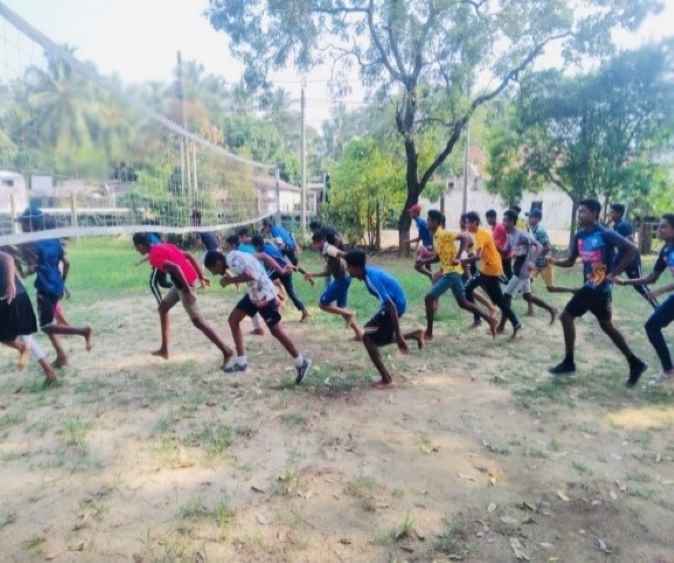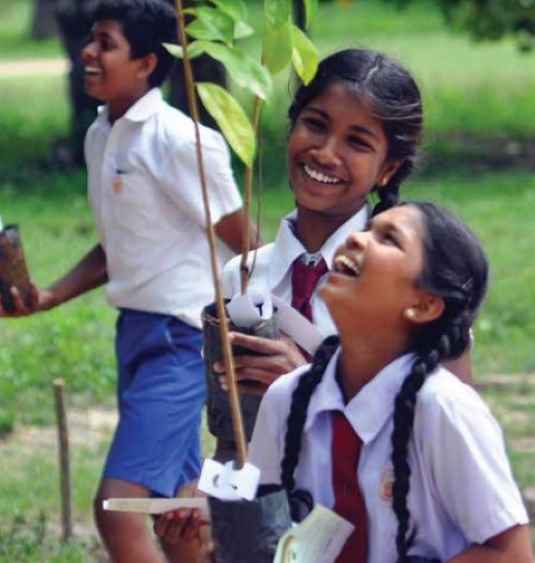
Extends its operational presence across multiple provinces to engage and encourage schoolchildren with multiple sustainability development projects
INSEE Cement, Sri Lanka’s largest and leading construction solutions provider has focused on “long-term impact investments” by engaging and uniting schoolchildren behind the common goal of creating change in their communities.
With the 2030 Agenda for Sustainable Development by the United Nations recognizing children as ‘critical agents of change’, INSEE Cement has nurtured thousands of students in the Southern, North Western and North Central Provinces over the past few years.
“As industry leaders and responsible corporate citizens, it is our duty to support the future generation of this country by laying a strong foundation for them today, in the present, regardless of the challenges that we are facing as a country,” CEO and Chairman of INSEE Cement, Nandana Ekanayake stated.
Mr. Ekanayake said by encouraging students through knowledge and awareness on sustainable development, INSEE Cement is equipping them to become positive change agents in their local communities, and is helping them to leverage their knowledge and become the next generation of leaders for a sustainable future.
The company launched a comprehensive, long-term, group-wide strategy titled INSEE Sustainability Ambition 2030 and provided holistic education to students across the fundamental pillars of INSEE’s Sustainability Ambition 2030: i.e. Climate & Energy, Biodiversity & Water, Circular Economy, Community & Stakeholder Engagement, and Occupational Health & Safety.
Balancing environmental, social, and economic impact
Under a large-scale tree-planting initiative 6,000 students aged between 5 – 15 from 28 schools in Anuradhapura and Puttalam Districts were educated on environmental best practices. The schools were provided over 10,000 fruit saplings to instill a sense of responsibility and urgency to addressing climate change.
Along with successful reforestation of over 87 hectares of the Aruwakkalu Quarry, the company initiated a monthly environmental mentorship programme in Wanathawilluwa. Each month, 25 young and aspiring environmentalists in six schools gather to understand environmental challenges and opportunities impacting Sri Lanka’s dry zone forests.

To address Municipal Solid Waste Management crisis, INSEE Cement provided several schools in Galle district with solid waste management facilities. Over 3,000 students and 180 teachers were trained on solid waste segregation by waste management experts from INSEE Ecocycle – INSEE Cement’s environmental services and waste management arm. The project was expanded several schools in Puttalam District as well.
For creating awareness on social issues number of sensitive topics and challenges were discussed including drug addiction and abuse among school children. Accordingly, an awareness campaign took place for over 500 school children, teachers and parents from 15 schools in Southern Province. Also, an awareness campaign on preventing child abuses was also held to commemorate Children’s Day, with the participation of 600 female students in 10 schools in Galle District.
INSEE Cement sponsored sports activities in eight Grama Niladhari Divisions in Puttalam District, focusing physical and psychological wellbeing of schoolchildren through sports, helping them develop leadership and social skills, discipline and competitive spirit. Over 400 children in Puttalam District are currently participating in INSEE-sponsored Cricket and Volleyball training activities.
The company partnered with Sri Lanka Police to train and certify 500 school traffic wardens to improve awareness on road safety rules and regulations among students, parents, and the school communities.
INSEE adopts a scientific methodology in conducting community-based sustainability engagements. A plant-level Community Advisory Panels (CAPs) were established to bring together community leaders, District Secretariat authorities, Grama Niladaris and an internal cross-functional INSEE team. CAP identifies and prioritizes projects that can make the most impact “example RO water filtration plant at Eluwankulama Sinhala School. Social Impact Assessments are carried out to measure the success of each project and obtain feedback from the communities.


